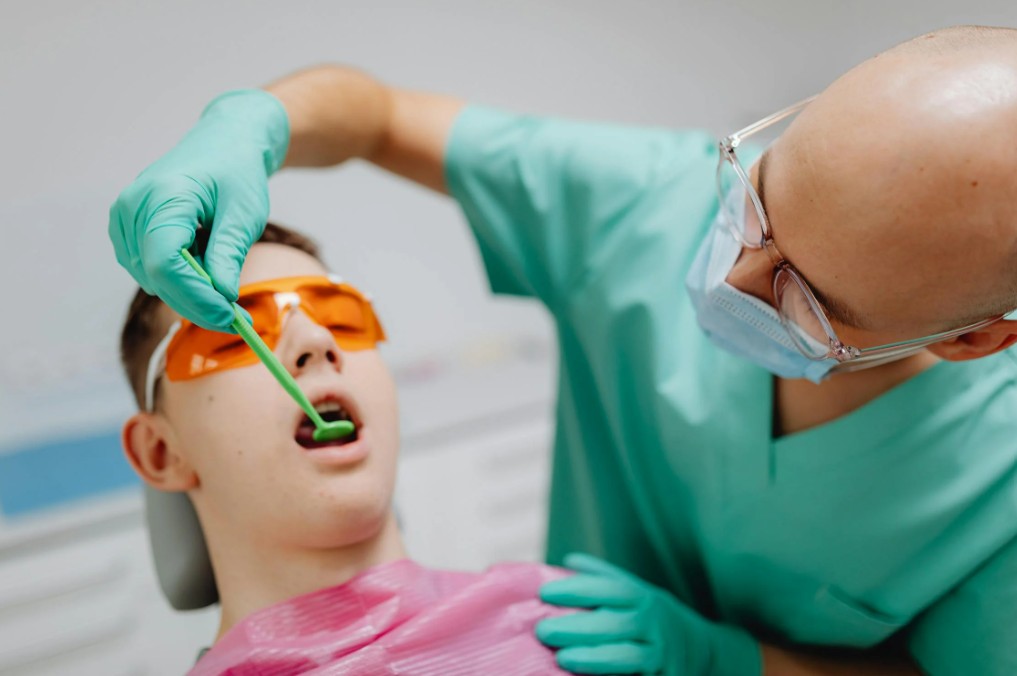If you’re a parent, understanding when your teen might be facing a dental emergency is crucial. Unaddressed dental issues can lead to severe pain and complications. In this guide, you’ll learn to recognize the warning signs and understand the steps to take for timely dental care, ensuring your teen’s health and comfort.
Severe Tooth Pain

Severe tooth pain is often a clear indicator that something is wrong with a teen’s dental health. This type of pain can result from various issues, including tooth decay, infection, or even injury. If left untreated, these conditions can lead to further complications such as abscesses, which can spread infection and cause serious health risks. Additionally, severe pain may affect a teen’s ability to eat, sleep, or concentrate on daily activities, impacting their overall quality of life.
Parents need to take any reports of intense tooth pain seriously and seek dental care promptly. Families from all over Windy City are looking to handle Pediatric Dental Emergencies in Chicago with professionals who understand the importance of timely and effective treatments. Quick intervention can not only alleviate pain but also prevent more extensive dental procedures down the line, promoting long-term oral health. Recognizing this pain as a warning signal is a critical step in addressing dental emergencies effectively.
Swelling or Bleeding
Various issues can cause your teen’s teeth to start swelling and bleeding. These are the following:
- Gum disease
- Dental abscess
- Trauma or injury
- Tooth decay
- Impacted wisdom teeth
These symptoms can suggest conditions like gum disease or dental abscesses, which, if ignored, may lead to more severe complications. Prompt dental assessment is essential to prevent the spread of infection and to safeguard overall oral health.
Broken or Knocked-out Tooth
A broken or knocked-out tooth can occur due to sports accidents, falls, or other trauma, resulting in not only physical pain but also potential long-term implications for oral health. A broken tooth can lead to exposure of the inner pulp, increasing the risk of infection and necessitating treatments like root canals.
Similarly, a knocked-out tooth presents an urgent situation; timely re-implantation is critical to save the tooth and ensure proper alignment. Delaying treatment can result in complications such as bone loss or misalignment of surrounding teeth, making it essential for parents to act quickly in these situations to preserve their teen’s dental health.
Loose or Lost Filling/Crown
A loose or lost filling or crown can increase tooth sensitivity, pain, and exposure to decay. When a filling or crown is compromised, the underlying tooth becomes vulnerable to bacteria, leading to infections or further decay.
This not only causes discomfort but can also escalate into more severe issues like abscesses, which may require invasive treatments. Prompt action is crucial; re-cementing or replacing the filling or crown can prevent additional damage and ensure the integrity of the tooth structure is maintained. Parents must address such signs swiftly to safeguard their teen’s oral health.
In conclusion, recognizing the signs of a dental emergency in your teen is essential for maintaining their oral health. By remaining vigilant and seeking prompt treatment for issues like severe pain, swelling, or lost fillings, you can protect their smile and overall well-being, ensuring timely interventions for a healthier future.
Also read:






